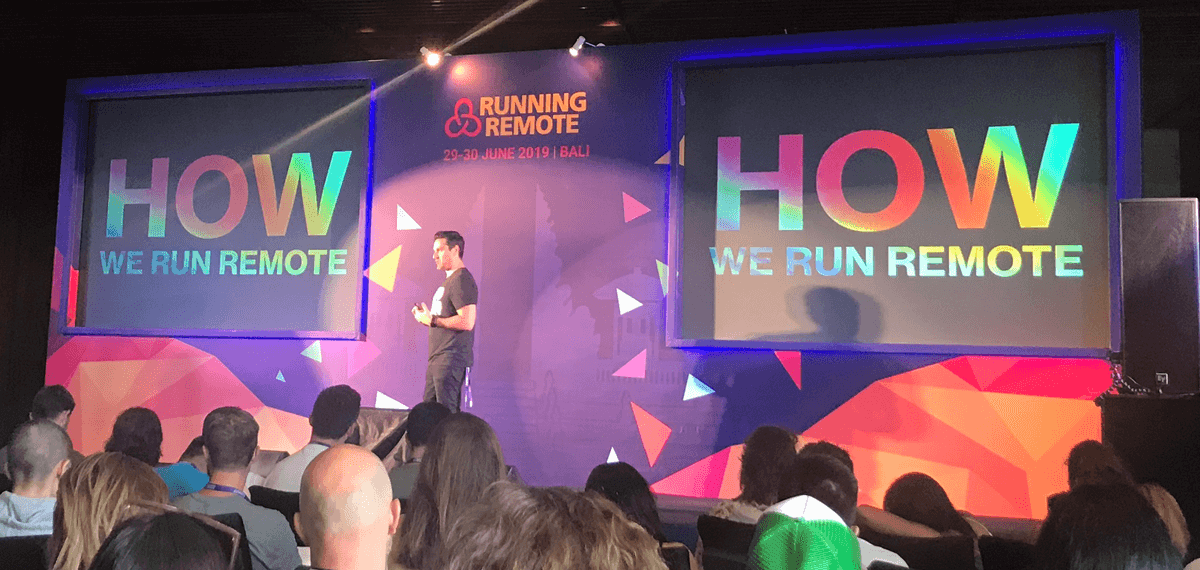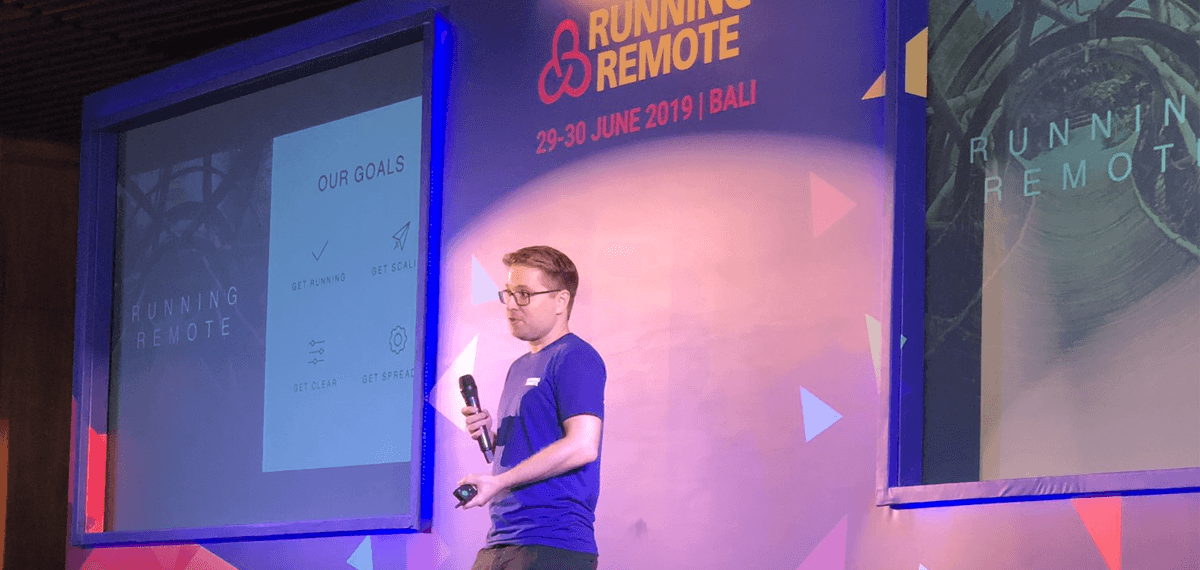Running Remote 2019 in beautiful Bali has come to a close. If you didn’t manage to make it to the event don’t worry, we’ve got you covered. Think warm thoughts, imagine sunshine on a picturesque beach and we’ll go over our top takeaways from the event to help you combat some of the major challenges that come with remote work.
Establish a process
Yes, this sounds obvious, every business should be well organized. Put down the pitchforks and allow us to explain. For remote and traditional businesses alike, creating well-structured processes helps to maintain efficient work practices but if you’re operating remotely it’s even more important.
If everyone’s working in the same office you can easily speak to colleges around your desk, have a quick chat with your direct report or check with other departments if you have questions. Remote teams don’t have that luxury and although that may sound like a negative, it’s actually a major benefit. Think about it, if it’s as easy as calling out to someone a few cubicles over from you to get a question answered, there’s no reason to make a note of the conversation. The next time someone has the same question they can and likely will, just do the same.
So what’s wrong with that you ask? It’s criminally inefficient, it doesn’t scale and what happens if someone leaves the business? Who do you ask then?

As Andreas Klinger, Head of Remote at AngelList explained, taking the easy way out like this leads local teams to form bad habits, frequently “monkey patching” issues and establishing poor or no processes.
Remote teams live and die by their ability to create crystal clear processes. If someone in the organization is unsure of something, they’ll know to check the relevant database or communication channels for the related process that explains exactly how to handle their problem. No more randomly reaching out to colleagues, chewing up both your time and theirs.
Build your culture
Culture within you’re business exists if you work on it or not, not addressing this is a culture in itself and obviously not a good one. Awareness of culture is the bare minimum but at some point, preferably sooner rather than later, you need to put a line in the sand and decide what your values are. These will evolve and change over time but by making a decision on them, you’re on your way to establishing a positive culture.
An easy way to start the process and put into writing what it is that makes your business special is to look at the positive things that are already happening in your organization and double down on them.

Adii Pienaar, founder at Conversio says to think of it like this “What would I clone if I could”. Is there an outlook, a result or even a person that has a noticeably positive impact on your culture. Figure out what it is you love about it and you’re there, that’s what you double down on and encourage. Its also not enough to just establish what your culture is and have a great mission statement, they’re pointless unless you actively work on implementing them. Making and maintaining a positive culture will take some work but it doesn’t have to be a chore.
Combat loneliness
The most common issue remote workers face is loneliness. The perks of working from home are incredible but at the end of the day people crave human interaction and a lot of time spent in remote companies will be time spent in isolation.
So what do you do about it? Video calls can be a big help, setting up regular one on ones and meetups for groups in Zoom or Skype can help pull a team together and give people that much-needed dose of humanity. These can be quick and easy but be careful not to turn them into the go-to without a purpose, structure is important.

Use these meetings to clear blockers and provide feedback. If you’re jumping on a video call with someone make sure there’s an agenda. As Zack Onisko, CEO at Dribbble says “No agenda. No meeting”. Don’t create meetings just for the sake of it, it slows everything down for no reason and takes people away from other work.
Video calls are great but the ultimate weapon in fighting loneliness is the team retreat. That right, use that cash your saving by not renting an office in Silicon Valley and fly your team to meet each other. Yes, this will absolutely cost you a pretty penny but investing in your team is one of the most important things you can do in business. What are you without your team? Not much.
Do you think all these massive companies would all be doing this without some impressive productivity metrics? The speakers at Running Remote were all a little cagey about revealing the data behind this but based on how popular it is to run physical meetups around the world you can be sure they are seeing results.
Remote work isn’t going anywhere, there are a lot of large companies (especially in the software industry) leading the charge and changing the status quo surrounding where you do your day job. Like anything else, it comes with its challenges but with a little elbow grease and the right attitude, it can be an incredible way to make a living and a rewarding path for running a company.





